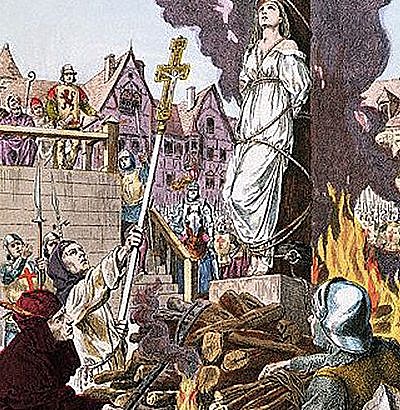(On Witch-hunting, Persecution, and Ignorance)
Bagamat malaki na ang naiunlad at malayo na ang narating ng pangkalahatang agham at teknolohiya, marami pa ring tao—sa Pilipinas, Canada, o saang lupalop man ng mundo—ang matindi pa rin ang pagkakakapit sa mga paniniwalang superstisyon.
One example of a superstition that many people still believe in despite the modernity of the current age is the existence of witches – individuals who allegedly practice witchcraft.
Yes, many people believe that real witches live among us. They never learned from the mistakes or follies of those who hunted so-called witches and hanged them or burned them at the stake hundreds of years ago. They couldn’t acknowledge that such witch-hunting and witch burning—which, sad to say, still occur in some remote places in the world—are, in true sense, simply a way of many religious and community leaders and jealous and ignorant members of a community to persecute those who have radical, progressive, or simply different ideas which usually question their own or challenge the general thinking of the majority; or, worse, a ploy of envious people to ruin the reputation or the lives of their neighbors whose livelihood is better than theirs.
Persecution in the Olden Days and in the Current Age
In various historical, anthropological, religious, and mythological contexts, witchcraft is the alleged use of supernatural or magical powers to inflict harm upon members of the community or their property. Individuals who are believed to have the ability to perform this are what many societies label as witches (usually when female) or wizards or warlocks (when male). Belief in this notion of witchcraft and resulting witch-hunts are both found in many cultures rampantly in Early Modern Europe of the 14th to 18th century (in which an estimated 40,000 to 100,000 executions took place), and even at this age!
Yes, witch-hunts still occur today in societies where belief in magic and other superstitions is predominant. In most cases, these are instances of mob justice.
For instance, in the Democratic Republic of the Congo, Tanzania, Ghana, Sierra Leone, Cameroon, Kenya, Gambia, and Zambia, the fear of witches drives regular witch-hunts during which witch-finders identify suspects, with death by mob often the result. In 1999, the BBC reported that in the Congo and in Tanzania, the government attacked women accused of being witches for having red eyes. Witch-hunts in Africa are often led by relatives seeking the property of the accused victim.
The only country where witchcraft remains legally punishable by death is Saudi Arabia. This says much about the mentality of many people in this country, more so of its leaders.
Even in the Philippines and in other Filipino communities elsewhere, there remain a great number of individuals who believe that witches exist—either innocently and ignorantly or maliciously (just to have a way to persecute those who have freethinking views).
Sa Madaling Salita
Noon at ngayon, wala pa ring ipinagkaiba—ang mga itinuturing na mangkukulam ng maraming tao ay walang iba kundi ang mga kapwa nila na mayroong kakaibang paniniwala—mga paniniwalang karaniwang sumasalungat sa itinuturo ng simbahang Kristiyano at iba pang uri ng relihiyon. Wala talagang mangkukulam na may kakayanang mahikal; iyan ay kathang-isip lamang ng mga taong mapagbintang sa kanilang kapwa. Ang totoo pa nga, maraming pinuno ng simbahan na ginagamit lamang ang bansag na mangkukulam para lamang makaganti o mapigilan ang mga taong hindi sang-ayon sa kanilang mga itinuturo. Kaya kung ikaw ay naniniwala sa kulam o mangkukulam e mag-isip-isip ka—dahil baka ikaw naman ang mabansagang makitid ang pag-iisip o malaki ang pagka-inggit sa kapwa na malawak at makabago na ang pananaw.
Or, In Simple Words
Labeling someone a witch is just a way of some envious and bigoted people to persecute those who have ideas that challenge and question the dogmas of religions or the often self-serving and double-standard rules of those in power or authority. So, if you still believe that witches exist and that some people can really practice witchcraft or the so-called black magic, better think twice; you might be branded a narrow-minded person who hides his envy and ignorance behind persecuting those who have modern and liberal perspectives.
Even the current meaning of ‘witch-hunt’ in the dictionary pertains no longer to actual witches but instead to persecution of people: “an intensive effort to discover and expose disloyalty, subversion, dishonesty, or the like, usually based on slight, doubtful, or irrelevant evidence.”
























